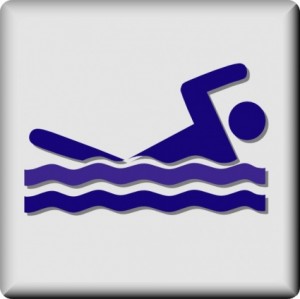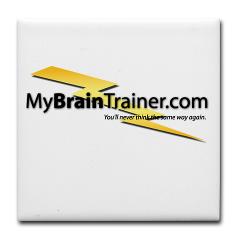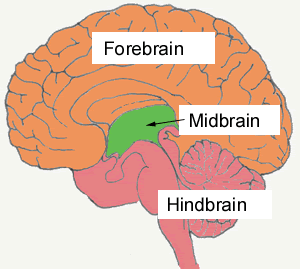Exercise Once Weekly Helps Avoid Mental Decline
While the Next Brain Blog is dedicated to techniques that improve brain function and enhance cognitive performance, I get a lot of email asking about ways to protect or maintain existing brain health. Fortunately, many techniques work both ways. They will boost your brain power or simply protect what you have depending on your age and the intensity of implementation.
 Take for example a recent study led by the Mayo Clinic that looked at the role of exercise and computer use in avoiding mild cognitive impairment in older adults. A key finding:
Take for example a recent study led by the Mayo Clinic that looked at the role of exercise and computer use in avoiding mild cognitive impairment in older adults. A key finding:
“Even exercising once a week was beneficial. Most of the participants seeing the greatest benefits were exercising five to six times a week combined with computer activity,” says Geda.
The benefit in this case is avoiding age-related memory loss.
On the other hand, walking and exercise has been found to improve cognitive performance not just avoid memory loss. In one example participants had to walk at least 3 times a week for 40 minutes.
Perhaps the habits we develop to boost our intelligence will also be the habits that we need to maintain brain health as we age.
Categories: Cognitive Decline, Lifestyle, Older Adult Tags: exercise
Rehearsing Before Bed Improves Recall Next Day
 Several recent studies suggest that you learn better and can improve at problem solving with the right sleep. Enhanced learning has been reported for a full night’s sleep and strategically timed naps. We have covered these in the Next Brain Blog, for example:
Several recent studies suggest that you learn better and can improve at problem solving with the right sleep. Enhanced learning has been reported for a full night’s sleep and strategically timed naps. We have covered these in the Next Brain Blog, for example:
Light Sleep Enough to Integrate New Memories
A Sleeping Mind is a Terrible Thing to Waste
Not All Naps Have Brain Boosting Effects
Now new research from University of Notre Dame looks at the effect of sleep on two different types of memories – episodic or memories for events and semantic or memories of facts about the world. They found:
“Since we found that sleeping soon after learning benefited both types of memory, this means that it would be a good thing to rehearse any information you need to remember just prior to going to bed. In some sense, you may be ‘telling’ the sleeping brain what to consolidate.”
This idea should be easy to test. I am interested to hear from readers that use this technique or any before-you-sleep method to improve brain function and cognitive performance.
Categories: Lifestyle, Memory and Learning Tags: study skills
Daily Practices for Optimal Cognitive Performance
 Lumosity, a well respected maker of brain training tools and games, recently shared the results of a massive (750,000 person) survey. They looked for specific daily practices that support optimal cognitive performance.
Lumosity, a well respected maker of brain training tools and games, recently shared the results of a massive (750,000 person) survey. They looked for specific daily practices that support optimal cognitive performance.
Here is what they found:
- 7 hours of sleep is much better than 5 or 10 especially when combined with the other practices.
- Exercise is key but your don’t need much. Cognitive performance peaks at about 2-3 workouts per week.
- Read at least 10 minutes everyday.
- Have 1-2 alcoholic drinks per day. Definitely avoid 3 or more.
- Play a musical instrument at least once per week.
Following these practices should improve memory and speed of mental processing.
Rarely do you see such specific advice on duration and quantity. Lumosity is able to get so specific when others are not because they have some 20 million registered users.
I am interested to hear from readers that decide to try this out.
Categories: Cognitive Decline, Diet, Lifestyle, Memory and Learning, Mental Focus, Music and Audio Tags:
Rosemary Scent Boosts Mental Speed & Accuracy
 I am often asked if aromas or scents improve brain function and enhance cognitive performance. Several previous posts on the Next Brain blog have highlighted peppermint, cinnamon, vanilla and citrus. Now, new research shows a link between aroma generated by rosemary oil and improved speed and accuracy in analytic and visual tasks. Rosemary contains an ingredient that impacts our neurochemistry. In the experiment the more of this ingredient that was absorbed the greater the chance of improved cognitive performance.
I am often asked if aromas or scents improve brain function and enhance cognitive performance. Several previous posts on the Next Brain blog have highlighted peppermint, cinnamon, vanilla and citrus. Now, new research shows a link between aroma generated by rosemary oil and improved speed and accuracy in analytic and visual tasks. Rosemary contains an ingredient that impacts our neurochemistry. In the experiment the more of this ingredient that was absorbed the greater the chance of improved cognitive performance.
For more information you can read the research article in the journal of Therapeutic Advances in Psychopharmacology or a another blog post.
Interested to hear from readers that use rosemary and other aromas to boost alertness, focus, processing speed, mood or other cognitive factors.
Categories: Ancient Ways, Mental Focus, Other, Problem Solving Tags:
Brain Health Food from the Cleveland Clinic
 The chief wellness officer from the Cleveland Clinic does a great job summarizing what we know about Food for Brain Health. He covers what to add to your diet, what to avoid and why as well as advice on other ways to stay brain healthy. While most of the food items have already been covered on the Next Brain Blog, there are a few surprises.
The chief wellness officer from the Cleveland Clinic does a great job summarizing what we know about Food for Brain Health. He covers what to add to your diet, what to avoid and why as well as advice on other ways to stay brain healthy. While most of the food items have already been covered on the Next Brain Blog, there are a few surprises.
For example, check out the list of items to the right. I bet you will find several new ones. For example, I did not know apple skins, Chia and tomatoes are health food for the brain. There is also a good discussion of things to avoid including trans fat, syrups, saturated fats and bleached flour.
We can eat to maintain brain health (avoid cognitive decline) but we can also eat to improve brain function and enhance cognitive performance. Eating the right things can make us smarter. I have cataloged over 12 examples here on the Next Brain Blog.
Interested to hear from readers that are using diet to maintain brain health or to boost brain power.
Categories: Cognitive Decline, Diet Tags:
Rapidly Generate Creative + Constructive Ideas
The ability to think creatively often comes down to changing the mental frame you are using to interpret a problem or situation. But how can we reframe? Recent research from the University of Massachusetts offers some techniques and claims Anyone Can Learn to be More Inventive. They studied:
“… more than 100 significant modern and 1,000 historical inventions, McCaffrey analyzed how successful inventors overcame various cognitive obstacles to uncover the key obscure information needed to solve problems. “
They offer two practical ideas involving the use of:
 The generic-part technique where you describe the features of an object without reference to their functions. For example, in describing the features of a electrical plug you might note it has two flat metal pieces. This helps you imagine potential new uses, for instance, as a screwdriver. By focusing on size, shape, material and other intrinsic properties we open up the frame we are using to understand the plug’s functionality.
The generic-part technique where you describe the features of an object without reference to their functions. For example, in describing the features of a electrical plug you might note it has two flat metal pieces. This helps you imagine potential new uses, for instance, as a screwdriver. By focusing on size, shape, material and other intrinsic properties we open up the frame we are using to understand the plug’s functionality.
 The thesaurus technique where you describe your goal or an aspect of the problem using a thesaurus. A thesaurus lists related terms which naturally cause us to think in different ways. A good thesaurus lists far more synonyms than we can think of by ourselves. For example, you might be working on a project that involves fastening or attaching one thing to another. A search for fasten on a good thesaurus generates 60+ synonyms and related words. Far more than we can brainstorm. It is also instructive to look at the antonyms or words that mean the opposite. They can trigger new ideas as well.
The thesaurus technique where you describe your goal or an aspect of the problem using a thesaurus. A thesaurus lists related terms which naturally cause us to think in different ways. A good thesaurus lists far more synonyms than we can think of by ourselves. For example, you might be working on a project that involves fastening or attaching one thing to another. A search for fasten on a good thesaurus generates 60+ synonyms and related words. Far more than we can brainstorm. It is also instructive to look at the antonyms or words that mean the opposite. They can trigger new ideas as well.
These techniques work. They are simple ways to change your mental frame and generate a good number of new and constructive ideas.
Categories: Problem Solving, Training Tags:
Up Mental Processing Speed by 10% in 21 Days
 A new study from Swinburne University of Technology showed significant improvement in mental processing speed in a small group of older adults that used braining training software for 20 minutes every day for 21 days. Thirty four adults ages 53-75 years participated in the study using MyBrainTrainer software.
A new study from Swinburne University of Technology showed significant improvement in mental processing speed in a small group of older adults that used braining training software for 20 minutes every day for 21 days. Thirty four adults ages 53-75 years participated in the study using MyBrainTrainer software.
“We found an improvement in simple reaction time of about 10 per cent compared to the control group, which is quite a lot. The intervention improved speed of processing which translates to younger brain performance,”
Results were measured post-training as well as three weeks later. While this is a small study it does demonstrate a significant improvement cognitive performance.
Interested to hear from readers that use MyBrainTrainer. Does it help you think faster?
Categories: Cognitive Decline, Software, Training Tags: brain training
Boost Your Brain But Not Too Much!
 The purpose of the Next Brain Blog is to explore ways to enhance brain function and improve cognitive performance. The blog is dedicated to exploring all ways of improving learning, decision-making, creativity, memory, levels of mental energy, pattern recognition, embodied cognition and all things mental. Nature gave us a hindbrain, midbrain and forebrain to deal with challenges in the environment. Optimistically, this blog assumes that we have the science, technology, drugs and training methods to take over where nature left off and create a Next Brain.
The purpose of the Next Brain Blog is to explore ways to enhance brain function and improve cognitive performance. The blog is dedicated to exploring all ways of improving learning, decision-making, creativity, memory, levels of mental energy, pattern recognition, embodied cognition and all things mental. Nature gave us a hindbrain, midbrain and forebrain to deal with challenges in the environment. Optimistically, this blog assumes that we have the science, technology, drugs and training methods to take over where nature left off and create a Next Brain.
But is cognitive enhancement necessarily a good thing? An interesting new article, Why Aren’t We Smarter Already: Evolutionary Trade-0ffs and Cognitive Enhancements suggest that perhaps it is not. The article points out that:
- Having a bigger brain means a baby’s head might not make it through a mother’s pelvis region leading to increases in infant mortality
- Cognition enhancing drugs such as Ritalin can cause poorer performance in individuals with normal attention levels and may interfere with some tasks such as driving because they cause us to over focus on the wrong things
- Having a super sharp or extraordinary memory seems to correlate to leading a difficult life and would certainty magnify the effects of trauma
- Very high IQ individuals may be more prone to genetic nervous system disorders.
The authors argue that our brains are in a natural balance with other parts of our bodies and the environment. Radical improvements in any aspect of cognition throws us out of balance and results in problems. While such fundamental trade-offs might make a supermind or megamind unlikely, the authors point out:
“If you have a specific task that requires more memory or more speed or more accuracy or whatever, then you could potentially take an enhancer that increases your capacity for that task,” he says. “But it would be wrong to think that this is going to improve your abilities all across the board.”
While interventions that are strong enough to create radical cognitive improvements are some time off, the article does begin to develop a framework for a deeper understanding of the issues and limitations associated with our ambition for bigger better brains.
Categories: Cognitive Development Tags: smart drugs
Gift Giving Idea: Consider Fat Brain Toys
 Fat Brain offers an amazing collection of high quality toys and entertainments designed to stimulate the brain and develop cognition. You can shop for toys by gender and ages ranging from 1 year old to 18 years old. From magnetic poetry and brain food (colorful goo) to the best selling stomp rockets and reflections (image shown), a truly unique game that combines mirrors, visual illusion and competition.
Fat Brain offers an amazing collection of high quality toys and entertainments designed to stimulate the brain and develop cognition. You can shop for toys by gender and ages ranging from 1 year old to 18 years old. From magnetic poetry and brain food (colorful goo) to the best selling stomp rockets and reflections (image shown), a truly unique game that combines mirrors, visual illusion and competition.
Just the kind of toys that should be on the holiday shopping list of Next Brain Blog readers. Interested to hear from anyone that has purchased or plays with Fat Brain Toys. How are they making you smarter?
Categories: Child, Cognitive Development, College Student, Mental Focus, Other, Perception, Problem Solving Tags: toys
Can Singing Significantly Improve Brain Function?
 The answer is yes according to the makers of SingFit an App for the iPhone and iPad that is due out in just a couple of weeks. Grounded in well-established principles from music therapy they claim:
The answer is yes according to the makers of SingFit an App for the iPhone and iPad that is due out in just a couple of weeks. Grounded in well-established principles from music therapy they claim:
“Scientific studies have shown that singing in general positively impacts the levels of hormones responsible for regulating mood, blood pressure and social bonding, including serotonin, cortisol and oxytocin. Furthermore, singing has been proven to help increase immune system strength and respiratory function while decreasing stress, pain and agitation. Imaging studies also reveal that singing can promote cross hemisphere brain activity, which can increase mental neuroplasticity and improve cognitive functioning.”
The app is free but they hope to sell you a $13 a month subscription for more content. I’d like to hear from readers that use this app or other forms of music therapy to build brain function and improve cognitive performance.
Categories: Ancient Ways, Memory and Learning, Music and Audio, Problem Solving, Sleep Tags:

